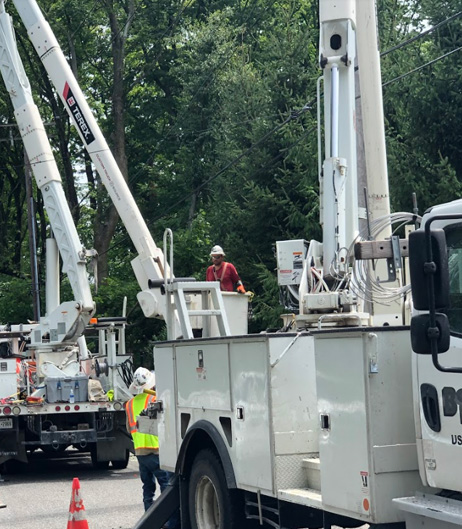Best Practices for Crane Safety in Construction

Crane operations are a vital part of construction projects, but they come with inherent risks that must be carefully managed. Ensuring the safety of workers, equipment, and the surrounding environment is not just a legal obligation—it's a core aspect of responsible project management. A strong safety culture helps prevent accidents, boosts productivity, and enhances your company’s reputation in the industry.
At Bobcat Contracting LLC, we understand the importance of crane safety and have developed comprehensive guidelines to help construction managers and site supervisors maintain a secure working environment. In this article, we’ll walk you through essential practices that every team should follow to ensure safe and efficient crane operations.
Â
The Importance of Equipment Maintenance and Inspection
One of the most critical aspects of crane safety is ensuring that the equipment is always in optimal condition. Regular maintenance and inspections can prevent many common issues before they become serious problems.
- Daily Pre-Operation Checks
Before each shift, operators should perform a quick but thorough inspection of the crane. This includes checking for visible damage, testing all controls, and verifying that safety devices like limit switches and brakes are functioning properly. These checks can help identify minor issues before they escalate into major hazards.
- Regular Preventative Maintenance
In addition to daily checks, cranes require scheduled maintenance by certified technicians. This includes lubrication, component replacement, and system diagnostics. Following the manufacturer's recommended maintenance schedule not only extends the life of the equipment but also reduces the risk of mechanical failure during operation.
Â
Training and Certification: The Human Factor in Safety
Even the best equipment can be dangerous if operated incorrectly. That’s why proper training and certification for all personnel involved in crane operations are crucial.
- Comprehensive Training Programs
All crane operators, riggers, and signal persons should receive thorough training on equipment operation, load handling, and emergency procedures. Ongoing education ensures that teams stay up-to-date with the latest safety standards and best practices.
- Mandatory Certifications
Certification from recognized authorities confirms that an operator has the necessary skills and knowledge to handle crane operations safely. It also demonstrates a commitment to professionalism and safety across the entire team.
Â
Â
Load Management and Rigging Best Practices
Proper load handling is essential to avoid overloading or unbalanced lifting, which can lead to serious accidents.
- Adhering to Load Limits
Every crane has a maximum load capacity specified by the manufacturer. Exceeding these limits can cause structural failures, tipping, or dropped loads—each of which poses a severe risk to workers and equipment.
- Correct Rigging Techniques
Using the right rigging gear and techniques ensures that loads are securely attached and balanced. This includes selecting appropriate slings, shackles, and lifting points, as well as considering environmental factors like wind and movement during the lift.
Â
Fostering a Safety Culture On-Site
A strong safety culture starts at the top. When leadership prioritizes safety, it sets the tone for the entire team.
- Open Communication
Clear communication between operators, riggers, and ground crews is essential. Establishing standardized signals and regular safety briefings helps everyone stay informed and alert.
- Continuous Improvement
Reviewing past incidents, updating protocols, and encouraging feedback from workers can lead to long-term improvements in safety performance. When safety becomes a shared responsibility, it significantly reduces the likelihood of accidents.
Â
Environmental Awareness and Technology Integration
Weather conditions, site layout, and potential obstacles all impact crane operations. Monitoring wind speed, visibility, and ground stability can help prevent unexpected dangers. Additionally, using advanced technologies like load sensors, anti-collision systems, and digital maintenance logs can further enhance safety and efficiency.
Â
Planning Ahead: The Key to Safe Crane Operations
Proper planning is the foundation of any successful crane operation. Conducting site surveys, assessing risks, and developing detailed lift plans are all essential steps in ensuring a smooth and safe process.
- Site Surveys and Risk Assessments
Before any lifting begins, a thorough site survey should be conducted to identify potential hazards such as overhead power lines, unstable ground, or nearby structures.
- Lift Planning and Coordination
A well-documented lift plan outlines everything from equipment selection to emergency procedures. It ensures that all team members are prepared and aligned for the task ahead.
Contact Bobcat Contracting LLC for Reliable Crane Rental Services in Houston!
At Bobcat Contracting LLC, we provide high-quality crane rental services that prioritize safety, reliability, and efficiency. Whether you're managing a large-scale construction project or a smaller job, our team is committed to delivering the support you need to keep your worksite safe and productive.
Don’t compromise on safety—reach out to us today for a free quote on crane rental in Houston and experience the difference that professional, safety-focused service can make.
Christmas Boxes,Christmas Gift Packaging Box,Christmas Square Gift Box,Christmas Different Shaped Gift Boxes
Dongguan Tielangtou Hardware Products Co., Ltd , https://www.tinboxtlt.com
